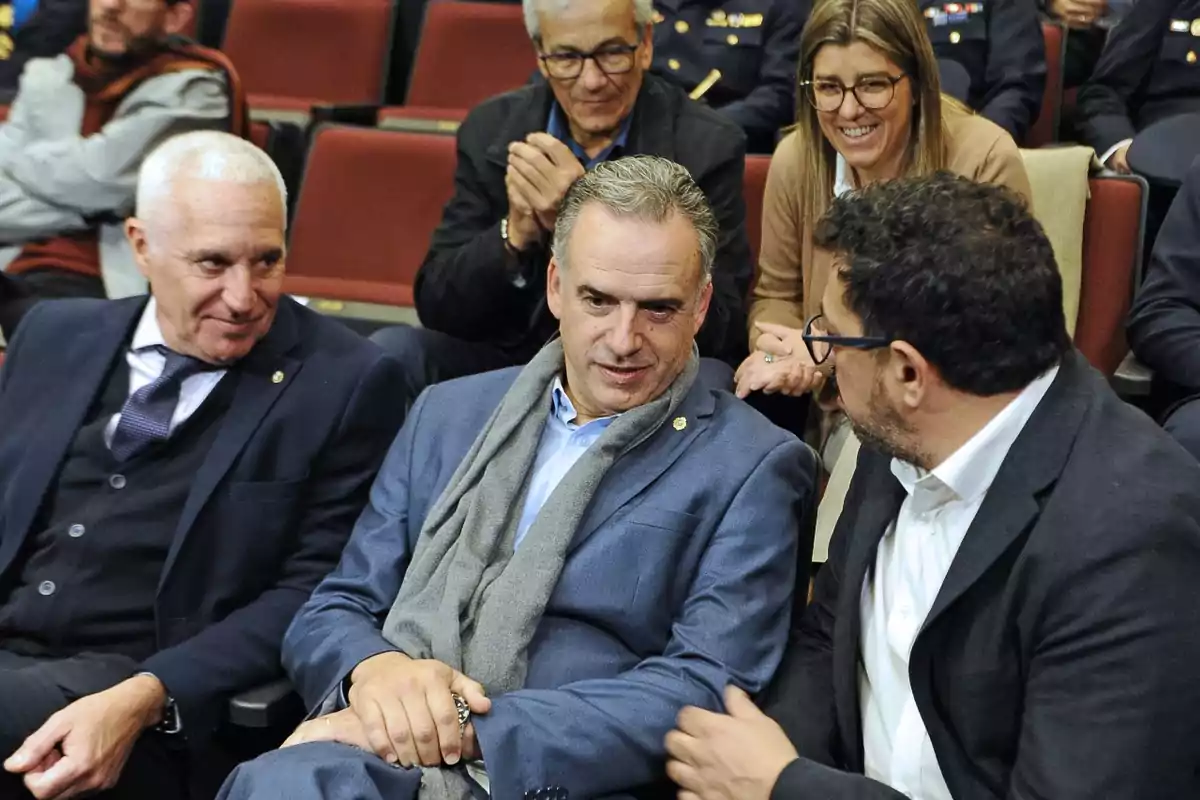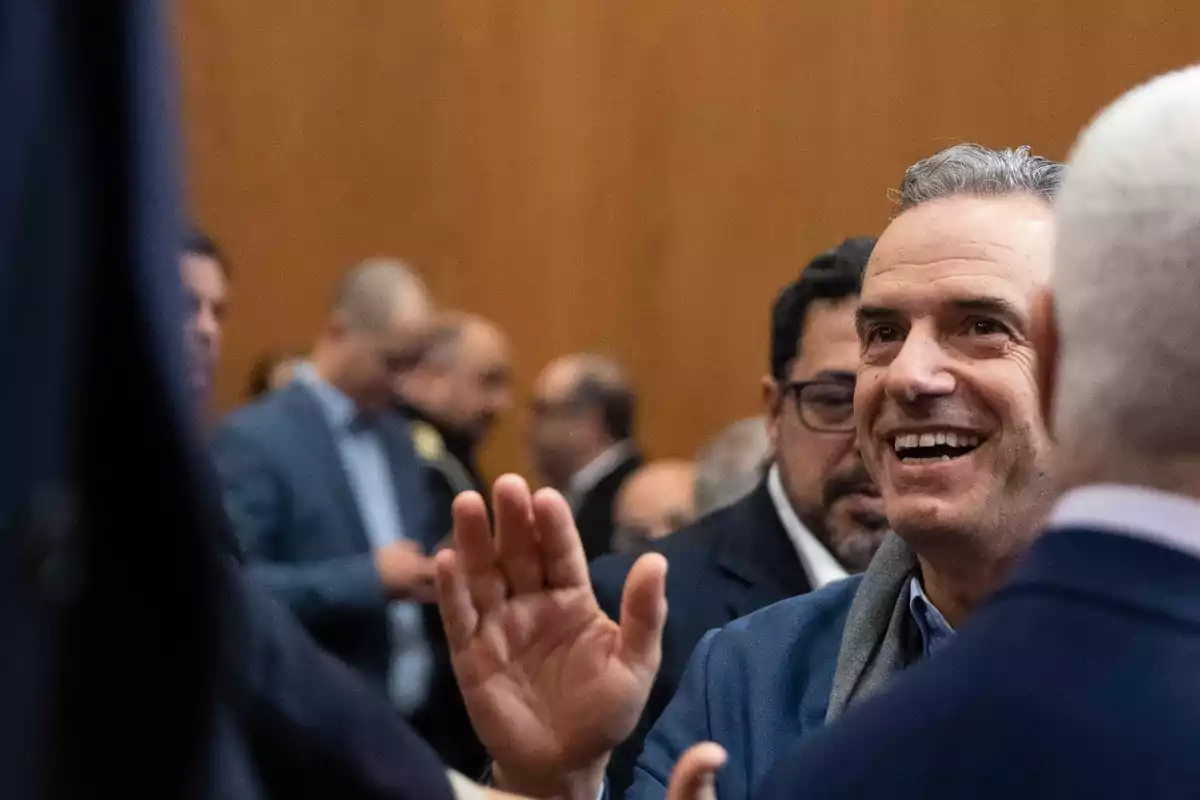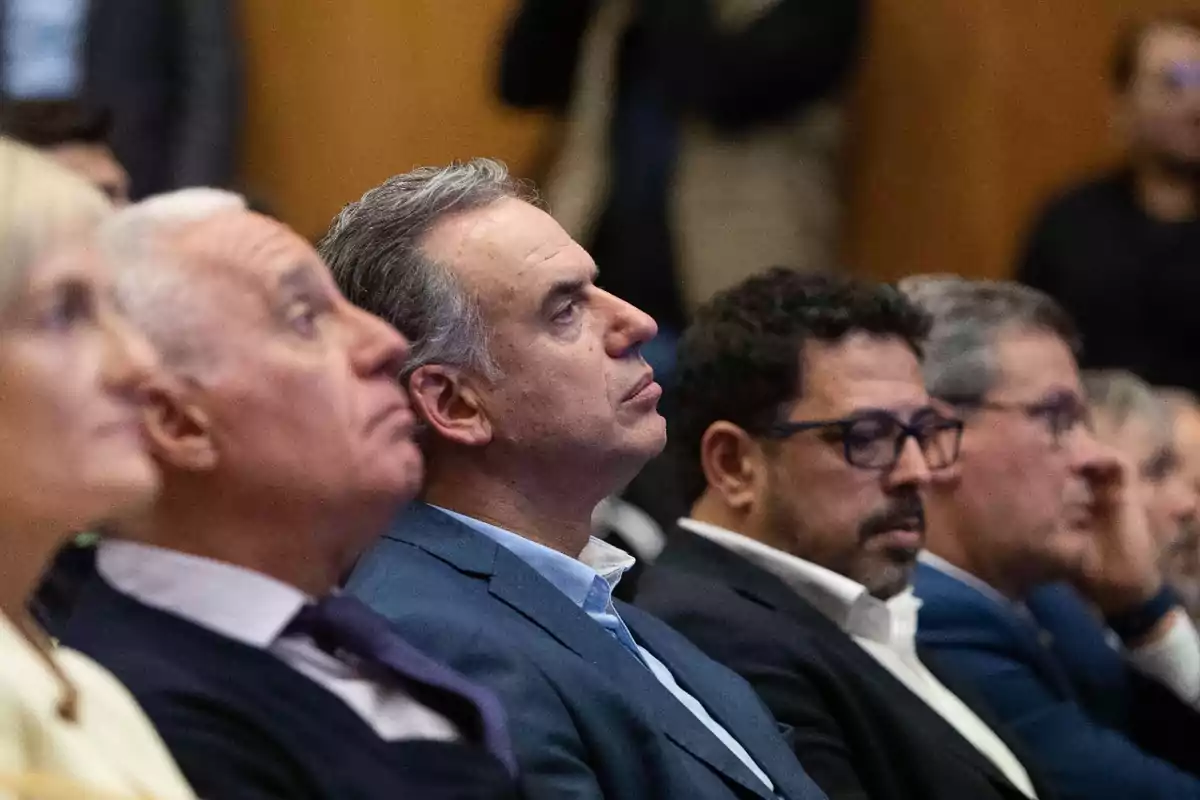
Extremely serious: the FA took office in March 2025 without a plan to address security.
With all the audacity in the world, they are proposing to deliver it by 2026 while thousands of Uruguayans are suffering
The left assumed office in March 2025 without a plan to address national security. It is almost August now, and with violence completely out of control, it announces that only in January 2026 will it present a "political proposal" regarding public security. Worse still: it will be done collectively, and by February of next year, it will be submitted to "social validation" to decide whether to implement it or not.
Currently, the government is only in the second phase of the National Public Security Plan (PNSP), called Encounters for Security, a "collective construction" that seeks to integrate multiple actors—political parties, branches of government, academia, experts, social organizations, the productive sector, and international references—into the design of the plan.
The plan has the "support" of an International Council for Observation and Cooperation, made up of six international organizations: Inter-American Development Bank (IDB), Andean Development Corporation – Development Bank of Latin America and the Caribbean (CAF), Southern Common Market (MERCOSUR), United Nations Office on Drugs and Crime (UNODC), Organization of American States (OAS), and United Nations Development Programme (UNDP).
Once again, Frente Amplio delegates one of the State's most sensitive responsibilities—the security of citizens—to supranational institutions that respond to interests foreign to Uruguayans.
Uruguay on the edge of the abyss
The data is devastating. Uruguay doubles the global average for homicides: between 10 and 12 per 100,000 inhabitants since 2022. Montevideo far exceeds it: 15.8. Entire neighborhoods are taken over by drug trafficking. Organized crime is gaining ground as in Ecuador. What does the Ministry of the Interior do? It organizes "encounters for security."

Mental health is devastated. The suicide rate in 2024 was 18.8 per 100,000 inhabitants, the highest in Latin America. Almost half of Uruguayans do not dare to walk at night. Only 35.1% of robberies are reported. Fear and impunity rule. Instead of action, there are "technical proposals."
Drug trafficking infiltrates without resistance. Digital crime is growing. Economic losses amount to 2.67% of GDP. The police, the prosecution, the judicial system... all overwhelmed. There is no investigative capacity. There is no leadership. There is no government.
You may also be interested in...
Designed to fail: National Public Security Plan
In this context, the Ministry of the Interior led by the useless Carlos Negro promotes a five-phase schedule that postpones any action for a year. This is the sequence:
First phase – Diagnosis (March – June 2025)
A technical document was prepared that exposed the extreme severity of violence and crime in Uruguay.
The report alone should have been enough for a truly honest government to understand that public security can't wait until 2026.

But no: they decided to move forward with their bureaucratic schedule, as if the country were not collapsing.
Second phase – Encounters for Security (July – December 2025)
Workshops, roundtables, dialogues, and validation of diagnoses because Carlos Negro says he wants everyone's input, but clarifies that the plan will continue "even if someone no longer wants to contribute." So, why do they ask for it?
It is clear that Frente Amplio has no idea how to design a public security plan that works. Since the left came to power in Uruguay, violence and crime have not only increased unchecked, but its disastrous management has accelerated the total collapse of national security, as confirmed by the government's own Public Security advisor, Emiliano Rojido, responsible for presenting the National Public Security Plan 2025-2035.
At the launch of the Encounters for Security, in Torre Ejecutiva, Rojido stated: "in the last twenty years we have seen a generalized increase in crime," confirming that since Frente Amplio took office in 2004, Uruguay has accelerated the collapse of public security. He also acknowledged that "in the last 20 years, the budget allocated to public security has more than doubled," but that "today we spend much more and have worse results than 15 years ago."
You may also be interested in...
These statements not only reflect the serious crisis the country is going through, but also imply a direct responsibility of the Frente Amplio administration in the deterioration of national security.
Third phase – Technical proposal (July 2025 – January 2026)
This stage consists of preparing an "evidence-based" proposal, although the "evidence" invoked by the government is not empirical, but ideological. Carlos Negro assured that the plan's proposal will include the government program and will follow the priority lines defined from the beginning of the administration.
In terms of security, Frente Amplio's government program proposed as a priority action the definition of a public policy with a preventive approach, aimed at decriminalizing poverty, de-prisonization, and disarmament.
As a central tool, the programmatic bases established the development of the Crime Prevention Plan, to promote prevention policies that address the impact of neoliberal, neoconservative, patriarchal, and colonial ideologies, which, according to the left, have historically contributed to the devaluation and stigmatization of popular sectors, women, people of African descent, sexual and gender dissidents, children, and adolescents.

For Frente Amplio, these are the patterns of structural exclusion that must be overcome to build democratic security, based on respect for human rights, social justice, and equity.
The Public Security advisor himself, Emiliano Rojido, acknowledged that "Uruguay has one of the highest incarceration rates per 100,000 inhabitants in the world" and stated bluntly that "prison is part of the problem, not the solution." Every man for himself.
Fourth phase – Political proposal (January 2026)
Eleven months after taking office, only then will they offer Uruguayans a proposal. Yamandú Orsi's government came to power without a defined strategy in what, according to Negro, is "the main concern for decades."
When a country is on the verge of collapse, what is needed is political will, immediate action, and moral authority to impose order. Organized crime is not fought with workshops. They are either deeply hypocritical, or they have less street knowledge than Venice.
You may also be interested in...
Fifth phase – Social validation (February 2026)
Only then, if there is consensus, will something be implemented. If not, wait again. Meanwhile, Uruguay continues to sink into insecurity, a victim of the inaction and bureaucracy of political parties.
As Public Security advisor Emiliano Rojido warned:
"A country that is spending economic resources to reverse the situation, that has a very significant citizen concern about security problems, that generates political changes and rotation of political parties in government to provide answers and doesn't achieve it, exposes itself to the emergence of 'anti-democratic' solutions. When democracy doesn't achieve basic results, such as security, which is a constitutive function of the State, if the political system fails to provide answers, these temptations and 'magical' thoughts appear."
The truth is that, with such a disastrous outlook, how the solution is described becomes irrelevant.
More posts: